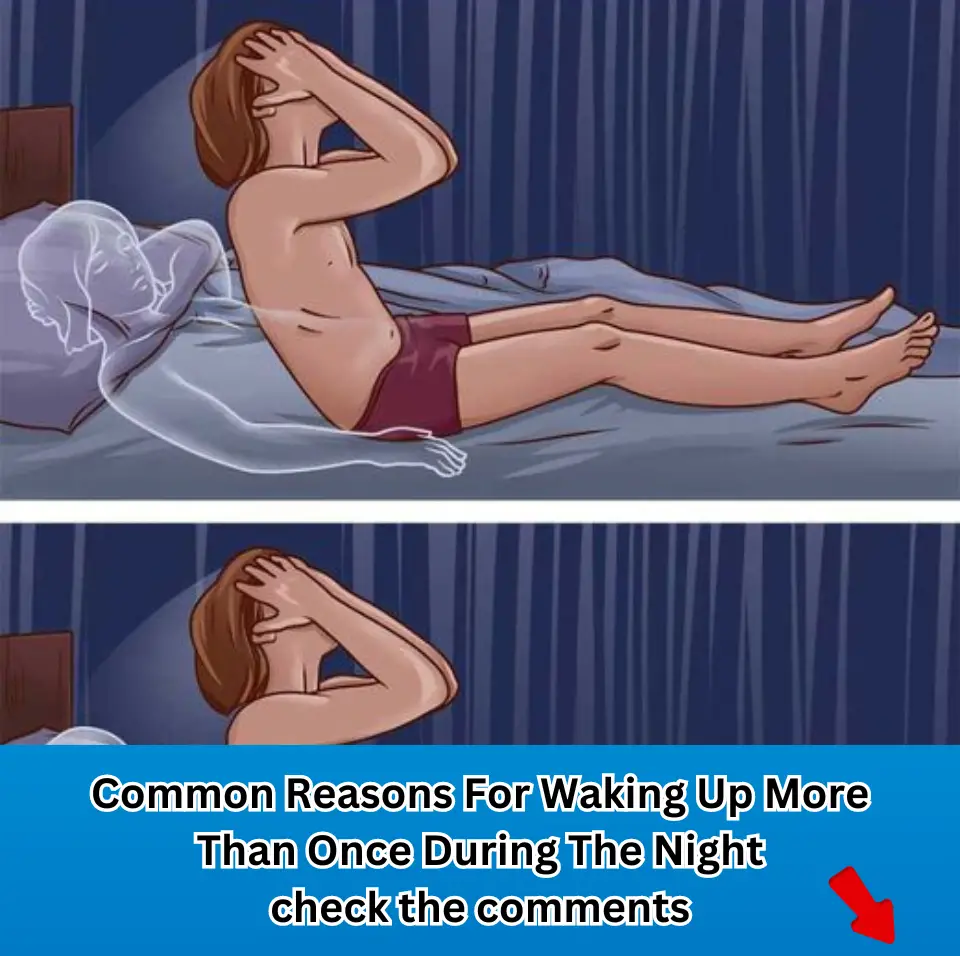Sleep is crucial for maintaining both mental and physical health, yet many people struggle with frequent nighttime awakenings. These disturbances can leave you feeling groggy and unrested. Here are six common reasons that could be disrupting your sleep, along with some tips to improve your rest.
1. Digital Distractions Before Bed
It’s tempting to scroll through your phone or watch videos before bed, but this habit can wreak havoc on your sleep quality. Research has shown that the blue light emitted from digital screens interferes with your body’s natural sleep cycle. When you wake up in the middle of the night and reach for your phone, this can further aggravate the problem, making it even harder to fall back asleep. Instead, try turning off all electronic devices at least an hour before bedtime. Opt for reading a book or practicing calming techniques to ease your mind.
2. Anxiety and Stress
If you’re going through a stressful period, it may not just affect your mental state during the day but also your nights. Anxiety can make your mind race with worries, preventing your body from fully relaxing. As a result, even if you manage to fall asleep, you’re more likely to wake up multiple times during the night. A common solution is to practice relaxation techniques like meditation or deep breathing exercises before bed. Cognitive-behavioral therapy (CBT) can also help if your anxiety is chronic and consistently disrupts your sleep.
3. Nocturia: The Need to Use the Bathroom
Another frequent culprit behind middle-of-the-night wakefulness is nocturia, the need to urinate frequently during the night. If you find yourself getting up to use the bathroom often, it can be difficult to get back into a deep sleep. One solution is to limit your liquid intake a few hours before bed and ensure that you use the bathroom right before sleep. Cutting down on caffeine and alcohol, which can act as diuretics, may also help reduce those nocturnal trips to the toilet.
4. The Hidden Effects of Caffeine
Caffeine is a stimulant that can stay in your system for hours, sometimes affecting sleep long after you’ve consumed it. Even if you feel tired, caffeine can disrupt your sleep cycle and prevent you from getting a full night of rest. Many experts recommend avoiding caffeinated beverages after 2 p.m. If you’re particularly sensitive to caffeine, you may even want to avoid it entirely after noon. Caffeine isn’t just in coffee—it can also be found in sodas, teas, and even chocolate.
5. Alcohol’s Deceptive Impact
Alcohol is often seen as a quick solution to fall asleep faster, but it doesn’t provide the quality rest you need. Alcohol interferes with the REM (Rapid Eye Movement) stage of sleep, which is essential for cognitive functioning and emotional regulation. You may initially fall asleep, but you’re likely to wake up multiple times throughout the night. To avoid this, try to limit your alcohol intake, especially in the evening, and allow a few hours between your last drink and bedtime. This will help your body clear the alcohol from your system and give you a better chance at uninterrupted sleep.
6. The Challenge of Insomnia
Insomnia, a condition characterized by the inability to fall asleep or stay asleep, can be both frustrating and exhausting. This chronic condition may be caused by several factors including anxiety, poor sleep habits, or even underlying medical issues. A consistent sleep routine can help alleviate some of the symptoms, as your body tends to respond well to routines. Going to bed and waking up at the same time each day—even on weekends—can help regulate your sleep cycle. If the issue persists, it’s advisable to consult a doctor for professional treatment.
Other Factors Affecting Sleep Quality
In addition to these six main causes, there are other factors that can contribute to waking up during the night. Temperature plays a significant role in sleep quality. If your room is too warm or too cold, it can be uncomfortable, leading to restless nights. Aim for a room temperature of about 65°F (18°C), which experts suggest is the ideal for sleep. Noise is another issue—whether it’s loud neighbors, street traffic, or even your partner snoring, any unwanted sounds can wake you up and make it difficult to fall back asleep. White noise machines or earplugs might offer a solution if you’re dealing with frequent noise disturbances.
Your sleeping environment matters as well. An uncomfortable mattress or pillow can prevent you from entering the deeper stages of sleep. Consider investing in a high-quality mattress and pillows that offer the right balance of comfort and support for your body type. Also, make sure your bedroom is dark—light can disrupt your circadian rhythm, making it harder to stay asleep.
Finally, hormonal changes—especially during pregnancy, menopause, or menstruation—can also lead to frequent awakenings. If this is the case, consult with a healthcare professional who may recommend treatments to balance hormone levels and improve sleep.
Conclusion: Improving Your Night’s Sleep
Waking up several times throughout the night is frustrating, but identifying the cause can help you address the issue. Whether it’s reducing screen time, managing stress, or adjusting your habits around caffeine and alcohol, small changes can make a big difference. If you’re still struggling despite these adjustments, seeking medical advice might be the next best step.
Remember, a good night’s sleep is not just about quantity but quality as well. Taking proactive steps to improve your sleep hygiene can drastically enhance both your mental and physical well-being.

